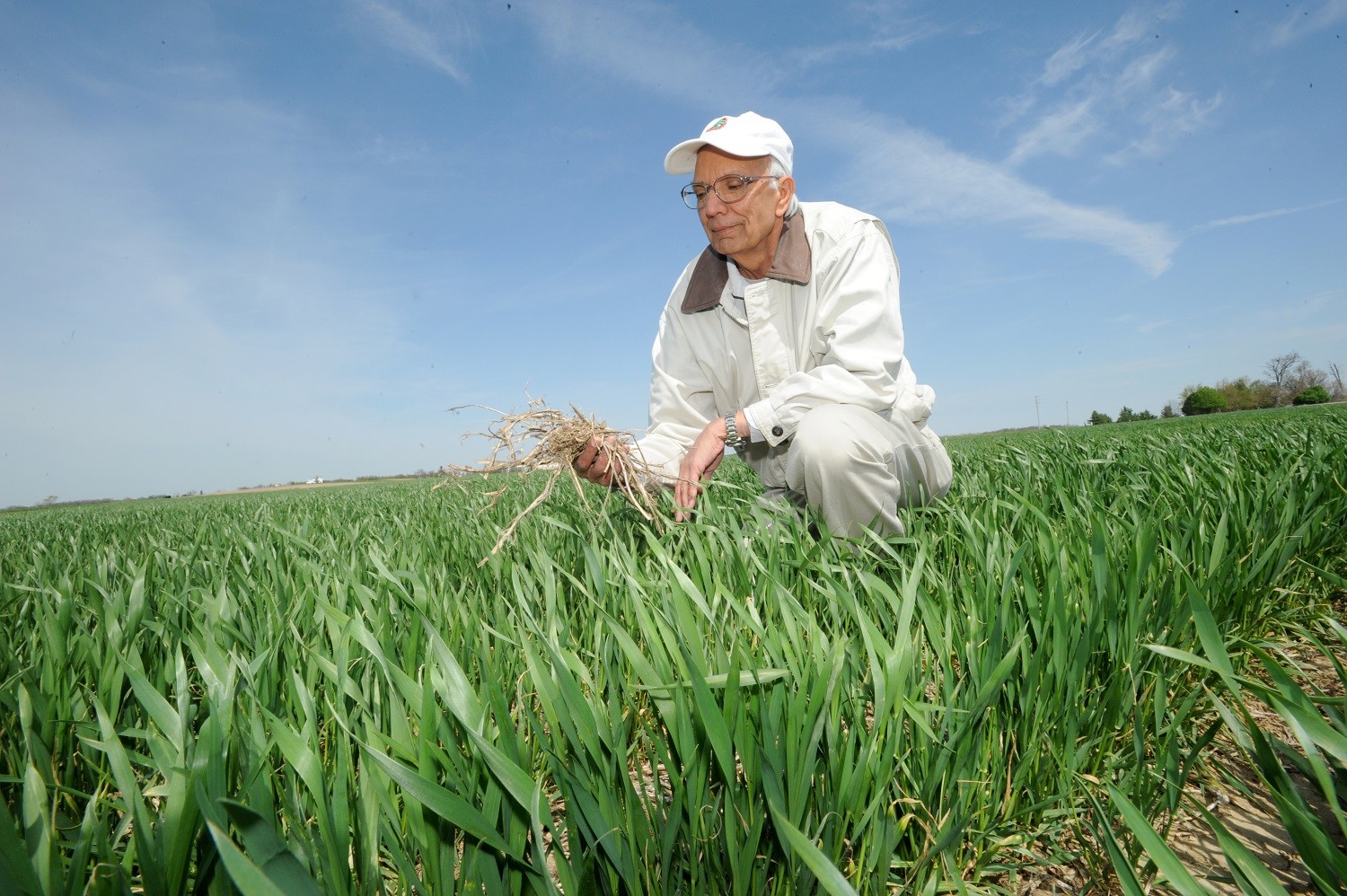
Sustainable practices, climate change, equitable profits, regenerative agriculture, knowledge-sharing, and developing countries are terms that bounced back and forth during the Ernesto Illy Colloquia: Sustainability challenges in coffee growing worldwide— jointly organized by UNESCO-TWAS and the Ernesto Illy Foundation.
A three-day event, the Illy Colloquia (27–29 September) have been hosted by The Abdus Salam International Centre for Theoretical Physics, in Trieste, Italy, where UNESCO-TWAS is based.
Addressing an audience of nearly 50 scientists from 27 developing and least developed countries, experts on genetics, sustainability, coffee-growing and socioeconomic questions shared possible solutions that, if applied worldwide, could have a positive impact on the coffee sector, which is witnessing a worrisome decline in production due to climate change, ecological constraints and a frantic market.
Rattan Lal has been one of the guest speakers at the event's closing round table, earlier today, along with Andrea Illy—Chair of illycaffè, Co-founder of the Ernesto Illy Foundation and Co-chair of the Regenerative Society Foundation—and Jeffrey Sachs, Professor and Director of the Center for Sustainable Development at Columbia University, in the US.
The Director of the Rattan Lal Center for Carbon Management and Sequestration of the College of Food, Agricultural and Environmental Sciences's at the Ohio State University, Lal has been a TWAS Fellow since 1991.
He is Goodwill Ambassador for Sustainability Issues for the Inter-American Institute for Cooperation on Agriculture, and a member of the 2021 United Nations Food System Summit Science Committee. From 1987 to 1990, he served as the President of the World Association of Soil and Water Conservation.
In anticipation of his intervention at the Illy Colloquia, he shared with TWAS staff writer Cristina Serra some considerations on the redeeming potential of sustainable agriculture in the coffee supply chain.
Prof. Lal, the expression "sustainable agriculture" often leaves some uncertainties about its real meaning. Could you clarify what is it?
Sustainable agriculture refers to land use and management practices that reconcile the need to increase agronomic productivity and to meet the demand of a growing human population with improving soil health and its capacity to provide critical ecosystem services for human well-being and nature conservation. In brief, sustainable agriculture aims to increase productivity per unit input, and sustain it over time, while protecting the finite and fragile resource base; to produce more from less, and return some land and water resources back to nature.
Why should governments take sustainable agriculture into greater consideration?
Because now sustainable agriculture is more important than ever before, and for many different reasons. Today, we are witnessing a per capita global decline in the average arable land, from 0.22 hectares to less than 0.07 hectares, in 30 countries. Renewable freshwater supplies are decreasing, with an impact on more than 4 billion people. We know that the atmospheric concentration of carbon dioxide (CO2) is growing at a rate of 2.2 ppm* or 0.5 per cent per year. Last but not least, food insecurity is growing, affecting about 820 million people, who are undernourished, and 2 billion who are malnourished. If, on top, we add issues such as climate change, wars and political instability, and ecological concerns, it is easy to see that we should roll up our sleeves and start doing something. Where should we start from? From sustainable agriculture.
Some experts claim that many of such problems stem from the increased amount of lands dedicated to agriculture. What is your opinion on this?
Certain agricultural practices can be a source of greenhouse gases and the cause of other ecological issues. Sustainable agriculture, however, should be viewed as an important solution to environmental issues, and a tool for advancing the United Nations Sustainable Development Goals.
To invert the current trends, what are the most urgent measures that we need to adopt?
In my opinion, they are education and training. Both are needed to connect people with nature, children with healthy soil, policymakers with the real world to 'translate' science into action, girls and women with tools to empower them and gain control of their own destiny, and land managers with the private sector to produce more from less. But, we all need also to embrace the idea that the health of soil, plants, animals, people, ecosystems and of our planet processes is one and indivisible. Society as a whole should promote stewardship of soil and natural resources, and realize that farmers and agricultural professionals must be treated with dignity and respect.
Children represent the future of the Earth: what would you suggest to them?
Children should know where healthy, nutritious and safe foods come from, along with other ecosystem services. Their alphabet books—in all languages—should be 'soil-centric' and environment-oriented, so that agricultural professions can attract the best and the brightest, once they are grown.
A journey of a thousand miles begins with a single step. Which should be our first step?
The world is at a crossroads, and there is a strong need for a paradigm shift able to transform the world food systems. Innovative food systems must be based on sustainable agriculture practices, nature-positive strategies and environment-friendly technologies. There is an urgency to identify and implement agricultural policies that support nature, adopting pro-agriculture and pro-farmer practices. Many countries adopted “clean water acts” and “clean air acts”; there is a similar need for “healthy soil acts”. The latter would be needed to reward farmers who enhance soil health; re-enrich the terrestrial biosphere (soil and vegetation) with carbon; make agriculture a solution through adaptation to, and mitigation of, climate change; strengthen the provision of other critical ecosystem services, such as improving renewability and quality of freshwater resources; and strengthen biodiversity above and below ground.
Cristina Serra
*Parts per million.

